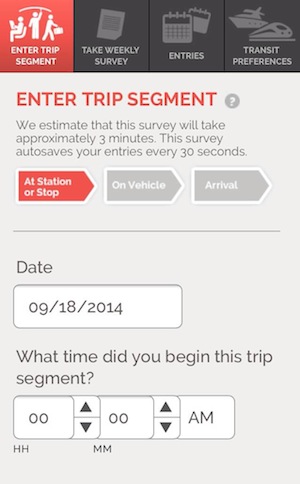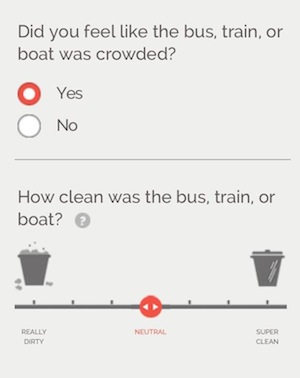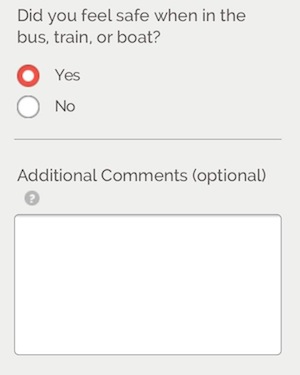A New Way to Rate the MBTA Is Coming to a Smartphone Near You

Photo by Alex Lau
MBTA riders will soon have a new way to rate their commutes, thanks to an ongoing web project led by an independent advisory group tasked with providing the transit agency with input from people who use the system each day.
Paul Regan, executive director of the MBTA Advisory Board, which represents cities and towns across the state that are serviced by the T, said the board is launching their diary-like mobile website that will allow commuters to track and record their experiences on buses and trains, so the group can collect the data and present it to the MBTA, letting them know where they’re doing a good or bad job.
“We want people to pay attention to their commute for a couple of weeks and rate every single step of the way,” Regan said of the project. “All these years I have been advocating for a state of good repair and to get existing riders the service they deserve, and I hope this is a tool that gives voices to those riders.”
Regan said the website, which launches Thursday, November 13, will be easily accessible via smartphone. It has been in Beta mode with a limited number of participants testing it out since September.
“I don’t see this as something we use to beat the T up with, but rather something that empowers the users to talk about what really concerns them,” said Regan.
While the MBTA Advisory Board worked on the T-rating app, Boston was able to get a sneak peek and walk-through of the prototype being tested.
Here’s how it works: first, riders will be asked to provide a limited amount of personal information, including an email address, what T services they typically take, how often they take them, and how they pay for those trips.
From there, once an account is created and activated, users will come to a homepage that will ask for their “transit preferences,” meaning which bus, train, or Commuter Rail services they use most frequently:

When that information is stored in the system, riders can go about keeping a daily log, much like a diary, providing insight into how they got to the station, how long it took for their ride to arrive, and whether or not it was on schedule.
As users go through the process, similar questions will be asked in regards to their “on vehicle” experience, followed by what a particular stop or station was like once a rider arrived at their destination:

Users will then get to rate the cleanliness level of each mode of transit they took, as well as how “smelly” a station or vehicle was:

At the bottom of each daily entry, riders will also have the opportunity to add their own personal comments, and upload photos of anything they saw while on the train or at a train station.

“We want to have the capacity for people to explain things and raise issues. This way we can document the complaints, and throw out some solutions,” said Regan. “This is calculating all the kinds of information that doesn’t exist now except for on things like Twitter—it’s only through those kinds of venues that people can vent, no one is doing it systematically. We want to put some structure around that.”
Each daily survey is quick, and Regan expects people will be able to fill them out in the time it takes them to get to where they’re going.
Regan said while the MBTA doesn’t fund the project—it’s an independent effort managed by the advisory board—officials have been supportive of the initiative. “The MBTA welcomes customer feedback as we strive to deliver the best service possible,” said T spokesman Joe Pesaturo when asked about the mobile site.
The MBTA has its own “customer feedback” page on its website, but the advisory board’s project is much more in depth, and keeps daily logs of activity. The project will also include random “weekly surveys” that ask riders about specific MBTA-related functions and projects.
Regan said once they really start to push the use of the daily tracker, the advisory board will tabulate the information and make the raw data available to the public in some form.
“This has the potential to be endless. As long as we have people to collect this data from, and send this to us, we will keep running it,” said Regan. “For all the bad press they get, the T wants to do a good job, and it’s the people who run the service that often seem most interested [in this feedback].”

